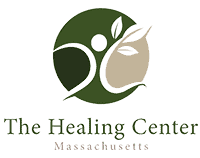At The Healing Center in Stoughton, MA, we believe that true recovery goes beyond treating the symptoms of addiction—it involves healing the whole person. Our holistic therapy offerings are a key part of our comprehensive drug and alcohol rehab program, designed to support the mind, body, and spirit throughout the recovery journey. We integrate evidence-based clinical treatment with holistic practices to create a more balanced, personalized approach to care that promotes long-term wellness and sustainable sobriety.
From meditation and mindfulness to yoga, nutrition counseling, and expressive therapies, our holistic services help clients reconnect with themselves and find inner peace amidst the challenges of recovery. These therapies not only reduce stress and improve emotional resilience but also support physical healing and self-awareness. At The Healing Center, holistic therapy is more than a supplement to treatment—it’s a vital pathway to helping individuals rebuild their lives with purpose, clarity, and strength.
What is Holistic Therapy?
Holistic therapy in addiction treatment refers to a comprehensive, whole-person approach that addresses not just the physical symptoms of substance use but also the emotional, mental, and spiritual components of recovery. Unlike traditional treatment methods that may focus solely on medication management and behavioral counseling, holistic therapy integrates a variety of complementary practices that support overall well-being. The goal is to help individuals heal in all areas of life, promoting balance, self-awareness, and long-term resilience. By treating the person as a whole rather than just the addiction, holistic therapy encourages sustainable healing and personal growth.
Common holistic therapies include practices such as yoga, meditation, acupuncture, massage therapy, nutritional counseling, and expressive arts therapies like music and painting. These modalities are typically used in conjunction with evidence-based treatments like cognitive behavioral therapy (CBT), dialectical behavior therapy (DBT), group counseling, and medication-assisted treatment (MAT). Each therapy plays a role in calming the nervous system, reducing cravings, increasing emotional stability, and fostering self-awareness. For example, a 2013 study published in the Journal of Alternative and Complementary Medicine found that mindfulness-based interventions significantly reduced substance use and improved psychological well-being among participants in recovery. Similarly, research in Substance Abuse: Research and Treatment (2020) highlights the benefits of yoga in improving emotional regulation, reducing stress, and lowering relapse risk in people with substance use disorders.
The physiological benefits of holistic therapies are also well documented. Acupuncture has been shown to ease withdrawal symptoms and reduce anxiety, while nutritional therapy helps restore physical health that has often been compromised by long-term substance use. According to a study published in Complementary Therapies in Medicine (2015), patients who received acupuncture and meditation alongside traditional rehab care experienced greater improvements in mood and a higher rate of program completion. These results suggest that holistic practices not only enhance the effectiveness of standard treatment methods but may also improve long-term outcomes by addressing unmet emotional and physical needs.
Ultimately, holistic therapy empowers individuals to reconnect with their inner selves and build a stronger foundation for lifelong recovery. It cultivates a sense of peace, self-awareness, and purpose that goes beyond sobriety alone. By embracing a range of therapeutic modalities, clients can discover healthier ways to cope with stress, rebuild self-esteem, and foster meaningful connections with others. In doing so, holistic therapy not only supports recovery from addiction—it helps individuals rediscover their potential and create a more fulfilling, balanced life.


Types of Holistic Therapy in Stoughton, MA Available for Addiction Treatment
Holistic therapies are increasingly recognized as valuable components of comprehensive substance abuse treatment. These approaches focus on healing the whole person—mind, body, and spirit—and are used to complement traditional medical and psychological treatments. By incorporating holistic methods, individuals in recovery can manage stress, build emotional resilience, and create healthy habits that support long-term sobriety.
Below are some of the most commonly used holistic therapies in addiction treatment programs:
Mindfulness & Meditation
Meditation and mindfulness practices help individuals become more aware of their thoughts and emotions without judgment. These techniques reduce anxiety, improve focus, and promote emotional regulation—key tools in maintaining sobriety and preventing relapse.
Yoga
Yoga combines physical movement with breath control and meditation. It promotes physical strength, mental clarity, and stress reduction, making it a popular practice in rehab programs. Yoga also helps individuals reconnect with their bodies in a healthy and positive way.
Nutritional Therapy
Substance abuse often depletes the body of essential nutrients. Nutritional counseling helps restore physical health by encouraging a balanced diet, improving energy levels, and supporting overall mental wellness. Healthy eating is also a crucial foundation for long-term recovery.
Art & Music Therapy
Creative expression allows individuals to process emotions and trauma that may be difficult to articulate in traditional talk therapy. Art and music therapy foster self-awareness, boost self-esteem, and provide a healthy outlet for emotional release.
Holistic therapies are not stand-alone solutions, but when combined with evidence-based treatments, they offer a well-rounded, personalized approach to healing. By addressing the physical, emotional, and spiritual aspects of addiction, holistic therapies empower individuals to embrace recovery with a renewed sense of purpose and inner strength.
Request a Confidential Callback
The Benefits of a Holistic Substance Abuse Treatment Program
A holistic substance abuse treatment program offers a well-rounded approach to recovery by treating the whole person—not just the addiction. Unlike traditional rehab models that focus primarily on medication management and therapy, holistic programs incorporate physical, emotional, mental, and spiritual healing practices. This comprehensive model supports lasting sobriety by helping individuals uncover and address the root causes of their substance use, such as trauma, stress, and unresolved emotional pain. By restoring balance across all areas of life, holistic treatment creates a strong foundation for sustainable recovery.
One of the key benefits of holistic treatment is its ability to reduce stress and improve overall well-being. Techniques like yoga, meditation, acupuncture, and massage therapy help calm the nervous system, enhance mood, and promote emotional regulation—all of which are essential in preventing relapse. These therapies also encourage self-awareness, allowing individuals to better understand their triggers and develop healthy coping mechanisms. As clients engage in these practices, they often experience improvements in sleep, energy, and mental clarity.
Another advantage of holistic recovery programs is the opportunity for personal growth and empowerment. Creative therapies like art, music, or nature-based activities provide non-verbal outlets for expression and healing, helping individuals reconnect with themselves in meaningful ways. Nutritional support and physical fitness programs also play a critical role, rebuilding the body’s strength and resilience after the physical toll of addiction. This mind-body-spirit alignment fosters a deeper commitment to wellness that extends far beyond treatment.
Ultimately, holistic substance abuse treatment offers a path to recovery that feels nurturing, personalized, and transformative. By addressing the complexities of addiction through multiple healing modalities, these programs help individuals heal more fully and reclaim their lives with confidence, purpose, and long-term clarity.

Does Insurance Cover Holistic Addiction Treatment?
Insurance coverage for holistic addiction treatment varies depending on the provider, plan, and how the services are integrated into an approved treatment program. Most insurance plans—including those through major providers like Aetna, Blue Cross Blue Shield, Cigna, UnitedHealthcare, and TRICARE—typically cover evidence-based therapies such as medical detox, inpatient rehab, outpatient services, and behavioral therapies like CBT or DBT. However, purely holistic treatments—such as massage therapy, acupuncture, yoga, or meditation—may not always be covered as stand-alone services.
That said, many accredited rehab centers incorporate holistic therapies as part of a broader treatment plan that is billed under covered services. For example, if meditation or yoga is offered as a component of a residential or outpatient program that includes evidence-based care, insurance may cover the cost of the entire program, including the holistic elements. In these cases, holistic therapies are considered part of the therapeutic environment rather than elective services.
To determine what’s covered, it’s important to:
Verify your benefits with your insurance provider or the treatment center’s admissions team
Ask if the holistic services are bundled into a comprehensive treatment plan
Find out if a prior authorization or referral is needed for coverage
Some plans may also offer reimbursement for select alternative therapies if they’re prescribed or recommended by a licensed healthcare provider. For veterans or active-duty service members, TRICARE may cover certain holistic therapies like acupuncture or mindfulness training if deemed medically necessary and provided through an approved network.
While insurance may not directly cover all standalone holistic services, many of these therapies are accessible through comprehensive programs at licensed treatment centers. Always check with your insurance provider or the rehab facility to understand what’s included in your plan and how holistic care is integrated into treatment.
Incorporating Holistic Therapies with Traditional Treatment
Incorporating holistic therapies with traditional addiction treatment creates a balanced, comprehensive approach that addresses every aspect of an individual’s recovery. While traditional methods—such as medication-assisted treatment (MAT), cognitive behavioral therapy (CBT), and group counseling—are evidence-based and clinically proven, they may not fully support the emotional, physical, and spiritual healing necessary for long-term sobriety. Holistic therapies help fill these gaps by offering complementary healing practices that promote overall well-being, reduce stress, and empower individuals to take an active role in their recovery journey.
By integrating practices like yoga, meditation, nutritional counseling, acupuncture, and expressive arts therapy into a traditional rehab program, treatment centers in Massachusetts can personalize care and engage clients in diverse, meaningful ways. For example, meditation and mindfulness can help improve focus and emotional regulation, supporting clients during therapy sessions and in their day-to-day lives. Yoga can reduce anxiety and physical tension, improving mood and encouraging self-discipline. These therapies work in synergy with traditional interventions, often enhancing treatment retention, client satisfaction, and long-term recovery outcomes.
Studies support this integrative approach. Research published in The Journal of Psychoactive Drugs found that combining holistic interventions with standard treatment increased program completion rates and significantly reduced cravings. Another study in Substance Abuse: Research and Treatment (2020) showed that mindfulness-based relapse prevention reduced substance use and improved emotional functioning compared to treatment-as-usual alone. These findings suggest that holistic and conventional therapies are most effective when used together, rather than in isolation.
Ultimately, blending holistic therapies with traditional addiction treatment creates a more robust and individualized recovery plan. It empowers clients to explore different paths to healing, discover inner strengths, and build habits that support long-term health. As more treatment centers adopt this integrative model, individuals in recovery benefit from a deeper, more enduring foundation for sobriety and personal growth.


Get Recovery Focused Holistic Therapy In Stoughton, MA Today With The Healing Center
Healing from addiction requires more than just breaking physical dependence—it demands emotional balance, mental clarity, and spiritual renewal. At The Healing Center in Stoughton, MA, we offer recovery-focused holistic therapy that treats the whole person, not just the symptoms of substance use. Our program combines evidence-based treatments with powerful holistic practices like yoga, meditation, nutritional support, and creative therapies to help you find strength, purpose, and peace on your journey to lasting sobriety.
Our compassionate team understands that every individual’s path to recovery is different. That’s why we personalize each treatment plan to include a blend of traditional and holistic therapies that fit your unique needs. Whether you’re just beginning your recovery journey or looking for additional programs to support ongoing sobriety, our holistic approach helps you reconnect with your mind, body, and spirit—laying a stronger foundation for a healthier, more fulfilling life.
You don’t have to walk this path alone. Take the first step toward a more balanced and empowered future by choosing The Healing Center’s holistic addiction treatment in Stoughton, MA. Contact us today begin your recovery with a program that truly nurtures every part of you.







